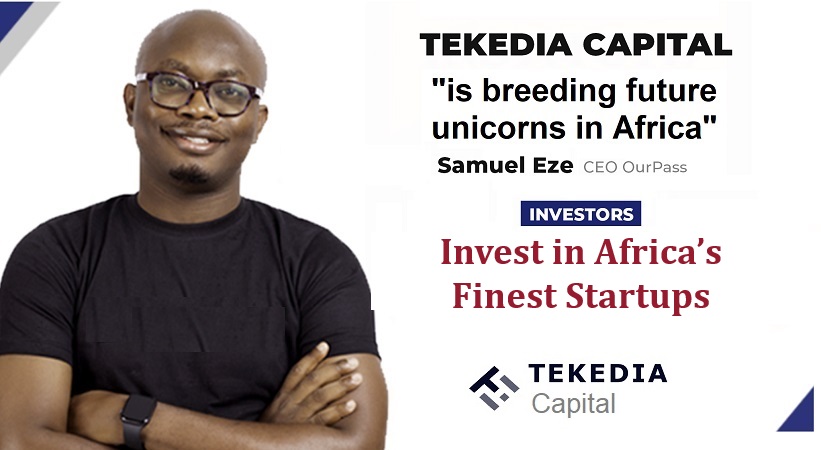News
Hong Kong’s Winning Approach to Cryptocurrency Regulation

Numerous measures demonstrate that Hong Kong is determined to promote a “dynamic ecosystem” for virtual assets and other related products.
Jill Wong, partner at the law firm Blacksmith Reedtells how Hong Kong is tackling cryptocurrency regulation, a task that involves assessing how to balance innovation and risk.
The editors are happy to share these views and invite readers to respond. Usual editorial clauses apply. Email
tom.burroughes@wealthbriefing.com
As in many other jurisdictions, Hong Kong’s initial response to the advent of bitcoin and other cryptocurrencies was to ask, “What is this?” This response has since evolved, although in the early stages of regulatory thinking, virtual assets (VAs) were regulated only to the extent that they fit within existing laws governing financial services. For example, VAs that resembled traditional securities were treated as “securities” or “futures contracts” under existing securities laws and were subject to licensing, marketing and other requirements under Hong Kong law.
However, because these laws were not designed with VAs in mind, there were VAs that did not fit neatly into traditional definitions and were therefore excluded from the regulatory net. The securities regulator, the Hong Kong Securities and Futures Commission (SFC), took steps to address this issue in the form of public statements, advising the public that VAs, like cryptocurrencies, needed to be licensed. For example, Initial Coin Offerings could be considered “collective investment schemes” and therefore required a license under the Securities and Futures Ordinance (SFO), while bitcoin futures also required a license under the SFO as “futures contracts.”
Things picked up pace in 2018 when the SFC expanded its regulatory oversight to cover existing SFC licensees who were portfolio managers and distributors of VA funds. This was a significant step in bringing more oversight and stability to the VA ecosystem.
The SFC published a position paper in 2019, outlining a new framework for the regulation of centralized VA trading platforms (VATPs). VATPs that provide trading services in both non-securities VA and securities VA would fall under the SFC’s regulatory net. However, there was a loophole: VATPs that only dealt in non-securities VA remained unregulated.
This was soon resolved. In June 2023, after extensive consultation, Hong Kong enacted a comprehensive licensing regime for VATPs. Under this regime, VATPs conducting non-security VA activities are required to obtain a VATP license under the Anti-Money Laundering and Counter-Terrorism Ordinance (AMLO).
Current position and prospects
Hong Kong has ambitions to become a VA hub. It is already moving in the right direction, with the 2023 UN Trade & Development report ranking Hong Kong ninth in the world in terms of readiness for frontier technologies. Hong Kong’s commitment to innovation (while offering due protection to investors) and a crypto-friendly legal framework have also positioned the territory as a global leader in the VA space.
Hong Kong regulators continue to supplement the existing regulatory framework for VAs. This includes introducing licensing regimes for stablecoin issuers with reference to fiat and over-the-counter trading in VAs. Regulators have already completed public consultations on these regulatory proposals and plan to introduce relevant legislation soon.
Hong Kong also became the first jurisdiction in Asia to offer retail investors the ability to trade spot bitcoin and Ether ETFs, paving the way for an in-kind redemption mechanism. This gave investors additional flexibility to buy and sell crypto token shares with a portfolio of securities, financial derivatives or VAs instead of cash.
This is a major move to integrate VAs into Hong Kong’s mainstream financial products. The inclusion of Ether also opens the door to new ETFs that track other major cryptocurrencies. This will further diversify Hong Kong’s exchange-traded product offerings, which now include a Metaverse ETF, a Blockchain ETF, and a number of VA futures ETFs.
Hong Kong is also investing heavily in financial technology, a key driver of the city’s competitive advantage. For example, the Hong Kong government has instructed the Hong Kong Monetary Authority (HKMA) to subsidize training costs for eligible financial sector professionals under the Fintech Subsidy Scheme.
The latest “Fintech Promotion Roadmap” of 2023 outlined five key pillars for development, emphasizing the adoption of fintech solutions in Hong Kong’s banking sector, expanding the fintech workforce, and improving data infrastructure. At the same time, the HKMA’s exploration of a retail central bank digital currency, e-HKD, reflects the regulator’s commitment to remain at the forefront of digital currency innovation.
Earlier this year, the HKMA launched a “sandbox” for stablecoins. This allows potential issuers to conduct experiments in relaxed regulatory environments and will facilitate dialogue between issuers and regulators. One high-profile example is a fintech company, founded by a former senior regulator, actively working on a Hong Kong dollar-backed stablecoin, collaborating with major players in the digital payments and VA sectors to explore the use of its stablecoin in retail and cross-border payments.
Legal advantages?
Hong Kong’s legal system also provides a favorable environment for the VA sector. Cryptocurrencies have been recognized by Hong Kong courts as “property” that can be held in trust in a liquidation context. Courts have also granted cryptocurrency freezing injunctions as asset preservation measures. These rulings provide welcome certainty for traders and investors.
That said, while Hong Kong may be considered a crypto-friendly jurisdiction, it is not an “easy” jurisdiction for regulatory arbitrage. The current VATP licensing regime is rigorous and robust (some argue it is too rigorous). The current licensing regime sets detailed criteria for applicants’ financial resources, management and governance structure, VA token admission requirements, custody of client assets, and anti-money laundering and counter-terrorism policies.
The SFC also reiterated that VATPs cannot serve mainland Chinese residents. These demanding requirements and lack of access to mainland Chinese customers may have prompted several major exchange operators to withdraw their VATP license applications.
However, a robust regulatory regime is arguably a necessary basis for sustainable growth. It lends credibility to companies that are committed to compliance and increases investor confidence. This would explain the continued interest in Hong Kong among the 17 potential VATPs waiting to be licensed.
Is Hong Kong outpacing the competition?
Traditional financial institutions interested in distributing VAs or managing funds should be encouraged by the recent moves by the HKMA and SFC. In December 2023, the HKMA and SFC issued the third joint circular on intermediaries dealing with VAs, expanding the scope for brokers, advisers and fund managers to provide VA-related services.
There are additional safeguards for investor protection: most VA-related products are likely to be considered complex products and, except in limited circumstances, distributors will therefore need to comply with existing requirements for sales of complex products. This includes an assessment of the suitability of the VA-related product for investors.
Only professional investors would have access to these products. However, there are some options for retail investors as they can trade VA-related products that are traded on the Hong Kong Stock Exchange and some other specified exchanges and VA funds that are authorised by the SFC for public offering. This should be a major boost for VA markets in Hong Kong.
In addition, the SFC has already given the green light to 25 funds, allowing them to have portfolios that invest more than 10 percent in VA.
Traditional banks and securities brokers can also offer VA trading services through partnerships with SFC-authorized VATPs. Several securities brokers have already received the green light from the SFC, and while there are currently only two authorized VATPs, it is likely that more will become available in the future.
These measures demonstrate Hong Kong’s determination to foster a vibrant ecosystem for VAs, innovative products and those who distribute, manage and invest in them. The global market is competitive, but Hong Kong has positioned itself at the forefront of this global market and is well positioned to reap the rewards in the coming years.
Disclaimer: This article is provided for informational purposes only and does not constitute legal advice.
News
US Cryptocurrency Rules Delayed by ‘Never-Ending’ Lawsuits

Ripple CEO says cryptocurrency industry still seeking regulatory clarity from US
Speaking to Bloomberg News on Wednesday (July 17), Author: Brad Garlinghouse he said America is behind behind other countries which have already adopted cryptocurrency regulations.
“What we’re seeing, where it’s the UK, Japan, Singapore… even the European Union, more than two dozen countries have come together to provide a framework for cryptocurrency regulation,” Garlinghouse said.
“It’s frustrating that we as a country can’t get that regulatory framework in place. And instead, we have this never-ending lawsuit coming from the SEC that doesn’t really address the problem.”
Ripple has been the target of some of these legal disputes. Securities and Exchange Commission (SEC) sued the company in 2020, accusing it of conducting a $1.3 billion operation offering of unregistered securities tied to its XRP token.
However, last year a judge ruled that only Ripple’s institutional sales of XRP, not retail sales, violated the law, a decision widely seen as a victory for the cryptocurrency industry.
As PYMNTS noted at the time, that ruling has “far-reaching repercussions impact across the digital asset ecosystem, which has long maintained that its tokens do not represent securities contracts.”
However, Garlinghouse told Bloomberg on Wednesday that the company cannot wage multimillion-dollar legal battles over each token.
He spoke to the news agency from the Republican National Convention in Milwaukee, where the party is backing the candidacies of former President Donald Trump and Ohio Sen. J.D. Vance, both of whom are considered pro-cryptocurrency.
But Garlinghouse argued that cryptocurrencies “should not be a partisan issue,” and noted that he had recently attended a conference in Washington that included Democrats, including White House officials.
“I think they were there, listening to the industry… it was refreshing to start having that conversation,” she said.
President Joe Biden earlier this year he vetoed a measure which would have ended the SEC’s special rules for crypto-asset custodians. This legislation was supported by both the digital asset industry and the banking industry.
Ripple early this year donated $25 million to the cryptocurrency industry’s super PAC Fair Smoothiewith Garlinghouse stating at the time that such donations would continue every year, as long as the industry had its detractors.
Second Open SecretsWhich monitor spending For campaigns, the PAC has spent $13.4 million this year, much of it to help defeat Rep. Katie Porter’s (D-Calif.) U.S. Senate campaign.
News
The Future of Cybersecurity in the Cryptocurrency Industry

The cryptocurrency space has had a tumultuous journey, with its fair share of ups and downs. As we look to the future, one area that remains a constant focus is cybersecurity. The digital nature of cryptocurrencies makes them inherently vulnerable to cyber threats, and as the industry evolves, so does the landscape of potential risks.
In 2022, the cryptocurrency market faced significant challenges, with over $2 trillion in market value lost. This event served as a wake-up call for the industry, highlighting the need for robust cybersecurity measures. The future of cryptocurrency security is expected to see a shift towards more regulated and established institutions taking the reins of crypto technology and blockchain infrastructure.
The decentralized nature of cryptocurrencies offers numerous benefits, such as transparency and financial inclusion. However, it also introduces unique security challenges. The risk landscape is filled with threats such as hacking, phishing, ransomware attacks, malware, and social engineering. These threats not only lead to financial losses, but also damage the reputation and trust within the cryptocurrency ecosystem.
Mini-MBA Tekedia edition 15 ((September 9 – December 7, 2024) started recordings; Register today for discounts reserved for early bird customers.
Tekedia AI in Business Masterclass Opens registrations Here.
Join the Tekedia Capital Syndicate and IInvest in Africa’s best startups Here.
The decentralized nature of cryptocurrencies offers many benefits, but it also presents unique security challenges. Cyber risks such as hacking, phishing, and ransomware pose threats to the integrity of digital assets. The infrastructure that supports cryptocurrencies is not immune to vulnerabilities, including smart contract flaws and exchange hacks.
To address these vulnerabilities, the infrastructure that supports cryptocurrencies must be strengthened. Smart contract vulnerabilities, exchange hacks, wallet breaches, and flaws in the underlying blockchain technology are significant concerns that must be addressed to ensure the security and integrity of digital assets.
As cybercriminal tactics and techniques become more sophisticated, the cryptocurrency industry must stay ahead of the curve. The future will likely see more targeted attacks, exploiting weaknesses in infrastructure, networks, and human factors. This requires a proactive and multifaceted approach to cybersecurity.
To mitigate these risks, several measures must be adopted:
Strengthening security measures: Developers, exchanges, and wallet providers must improve security protocols, use strong encryption, implement multi-factor authentication, and conduct regular security audits.
Education and awareness: Users should be educated on best practices for protecting their digital assets, including using strong passwords, recognizing phishing attempts, and using hardware wallets for secure storage.
Looking ahead, the cryptocurrency industry is expected to see an increased focus on robust security measures. Blockchain projects and exchanges are likely to invest in advanced encryption techniques and decentralized storage solutions to protect user assets. The future impact of cyber risk on cryptocurrencies will depend on the collective efforts of stakeholders to address vulnerabilities and strengthen security measures.
Collective efforts by stakeholders in the cryptocurrency space are crucial to address vulnerabilities and strengthen security measures. While challenges persist, advances in cybersecurity technologies and practices offer hope for a more secure and resilient cryptocurrency ecosystem.
The future of cybersecurity in the cryptocurrency industry depends on finding a balance between innovation and regulation. It requires a collaborative effort from all parties involved, from developers to end users, to create a secure environment that fosters trust and growth in the industry. As we move forward, it is critical that lessons learned from past events guide the development of stronger security measures, ensuring the longevity and stability of cryptocurrencies as a vital part of the modern economic toolkit.
Like this:
Like Loading…
News
Bullish XRP and RLBK price predictions rise, outpacing the broader cryptocurrency market, prompting Shiba Inu holders to switch!

Bitcoin’s one-week surge from $60,000 has pushed other cryptocurrencies into an uptrend. However, for many altcoins, this trend has been temporary. Altcoins such as XRP and Shiba Inu (SHIB) have experienced price drops. However, Rollblock, a new altcoin on the Ethereum blockchain, has thrived during this period, attracting thousands of investors looking for long-term growth.
XRP’s Nearly 30% Growth Over Last Week Drops as Selling Pressure Increases
XRP is seeing further price decline as Ripple investors withdraw their profits from the token. The surge in XRP’s price to $0.64 in the past week has provided investors with a perfect opportunity to increase their returns in the short term. With the ongoing sell-off in XRP, XRP has jumped over 8% in the past day and is now trading at $0.59. However, analysts tracking XRP indicators predict that XRP could still extend its gains by over 30% in the coming weeks.
Shiba Inu (SHIB) marks its third consecutive day of losses
Shiba Inu (SHIB) is in a period of adjustment after a week of strong gains. In the last 24 hours, SHIB has seen a jump of over 7%, reflecting a natural market fluctuation. Analysts are observing a death cross on the Shiba Inu chart, which historically signals the potential for future opportunities as the market stabilizes. As investors explore new possibilities, some are diversifying into promising altcoins like Rollblock (RBLK) to strategically rebalance their portfolios and capitalize on the emerging trend.
Rollblock (RBLK) Up Another 7% as New Investors Join Pre-Sale
Rollblock (RBLK) has taken the cryptocurrency market by storm, having attracted investors from more popular altcoins like Shiba Inu (SHIB) and XRP. Rollblock’s growth is attributed to its utility in the $450 billion global gaming industry.
Rollblock aims to use blockchain technology to bridge the gap between centralized and decentralized gambling. With blockchain technology, Rollblock secures every transaction in its online casino, providing transparency and convenience to millions of players who are uncomfortable placing bets on other iGaming platforms.
This innovative use of blockchain technology in the industry has grown Rollblock to over 4,000 new users in less than two months. With plans to add sports betting, this number is expected to grow exponentially in Q3.
Rollblock uses a revenue sharing model that splits up to 30% of its casino’s weekly profits with token holders. This happens after Rollblock buys back $RBLK from the open market and uses half of it for rewards. The other half is burned to increase the price of $RBLK.
Rollblock price has seen four increases in the past month with $RBLK tokens now selling for $0.017. Analysts predict that at the current growth rate, Rollblock could increase by over 800% before the presale ends. For investors looking for a long-term token with growth potential, phase four is the best time to buy Rollblock before its price skyrockets!
Discover the exciting Rollblock (RBLK) pre-sale opportunities now!
Website:https://Rollblockpresale.io/
Social: https://linktr.ee/Rollblockcasino
No spam, no lies, just insights. You can unsubscribe at any time.
News
Texas Crypto Miners Turn to AI as Crypto Declines

As cryptocurrency mining becomes less profitable, Texas cryptocurrency mining companies are switching to supporting artificial intelligence companies.
Bitcoin miners, with their sprawling data centers and access to significant energy resources, are ideally suited for computationally intensive AI operations, and as cryptocurrency mining becomes less profitable, companies see this shift as a logical answer to their problems.
On Thursday, Houston-based Lancium and Denver-based Crusoe Energy Systems announced a multibillion-dollar deal to build a 200-megawatt data center near the West Texas city of Abilene to support advanced artificial intelligence applications such as medical research and aircraft design, CNBC reported. The plant represents the first phase of a larger 1.2 gigawatt project.
Lancium and Crusoe’s move into AI mirrors a broader trend among bitcoin miners. The combined market capitalization of the top U.S.-listed bitcoin miners hit a record $22.8 billion in June. Companies like Bit Digital and Hut 8 are diversifying into AI, with Bit Digital securing a $92 million annual revenue deal to supply Nvidia GPUs and Hut 8 raising $150 million to expand its AI data center.
But the growing popularity of these operations also presents challenges, particularly for the Texas power grid. Last month, the Electric Reliability Council of Texas announced that the state is expected to nearly double its energy production by 2030 to meet the high energy demands of data centers and cryptocurrency operations.
Lieutenant Governor Dan Patrick expressed concern about the projections.
“Cryptocurrency miners and data centers will account for more than 50% of the additional growth. We need to take a close look at these two sectors,” He wrote on Twitter/X. “They produce very few jobs compared to the incredible demands they place on our network. Cryptocurrency miners could actually make more money selling electricity to the network than they do from their cryptocurrency mining operations.”
Analysts predict significant growth in data center power capacity, which is expected to account for up to 9% of U.S. electricity consumption by 2030.
The operations also pose challenges for nearby cities. Earlier this month, TIME reported that a crypto-mining facility was seriously compromising the health of residents in the city of Granbury. TIME reported more than 40 people with serious health problems, including cardiovascular disease, high blood pressure and hearing loss. At least 10 of the residents needed to go to the emergency room or an urgent care facility.
The disturbances were caused by the extreme noise generated by the crypto-mining facility’s fans, which are used to keep the machines cool. While the proposed data center in Abilene would use liquid cooling systems, it’s still unclear whether the facility’s operations would pose a health risk to local residents.
-

 Nfts1 year ago
Nfts1 year agoShardLab Launches ZK-Based Tool for Digital Identity and NFT Vouchers
-

 News1 year ago
News1 year agoWallet recovery firms are abuzz as stranded cryptocurrency investors panic in the bitcoin boom
-

 Bitcoin1 year ago
Bitcoin1 year agoBitcoin, Ethereum, Solana and Cryptocurrency Markets Look Ready to ‘Send’ as Stars Align, According to Investor Chris Burniske
-

 Altcoins1 year ago
Altcoins1 year agoThree Altcoins Poised for Significant Growth in 2024: ETFS, OP, BLAST
-

 Altcoins1 year ago
Altcoins1 year agoAccumulate these altcoins now for maximum gains
-

 Nfts1 year ago
Nfts1 year agoOG Crypto Artist Trevor Jones Unveils Groundbreaking Collection of Ordinals | NFT CULTURE | NFT News | Web3 Culture
-

 Bitcoin1 year ago
Bitcoin1 year agoBillionaires are selling Nvidia stock and buying an index fund that could rise as much as 5,655%, according to some Wall Street analysts
-

 Videos9 months ago
Videos9 months agoKamala just won the boner! [Bad For Crypto]
-

 Videos1 year ago
Videos1 year agoLIVE FOMC 🚨 Could be CATASTROPHIC for Altcoins!
-

 News1 year ago
News1 year agoA Guide for Newcomers & Beginners – Forbes Advisor
-

 Videos1 year ago
Videos1 year agoAttention: a historically significant BITCOIN signal has just appeared!
-

 Videos1 year ago
Videos1 year agoSTOCK MARKET FUD! ⚠️ [Why This Is GREAT For Bitcoin Traders!]







